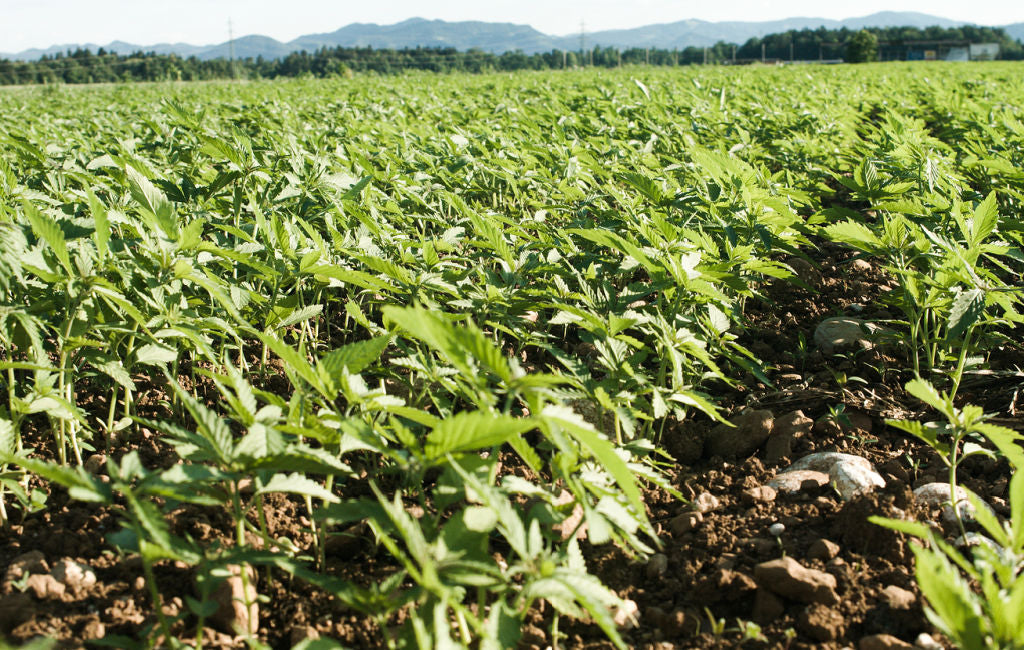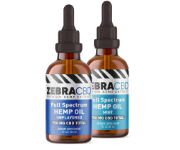
Whether it’s infused in beauty products or your beverage of choice, CBD seems to be everywhere you look. To that end, market research shows that the CBD industry could expand beyond $20 billion by 2024.
As the market and demand grow, you can expect to see even more product options, from CBD edibles to CBD cream. But just how can you distinguish the best CBD oil products from the ones that don’t live up to their labels or expectations?
This guide will show you how to shop and look for quality CBD products that meet your wellness goals.
Inform Yourself About CBD
If you’re interested in adding CBD oil and other CBD-infused products into your wellness routine, it’s probably because you’ve heard about CBD’s many benefits.
Because the world of CBD products is a little complicated, getting a handle on some CBD specifics is a valuable first step toward learning how to choose high quality CBD oil or other products that not only jibe with your wellness goals, but are what they say they are (more on this below).
CBD vs. THC
Many people are confused about the difference between CBD and THC.
While CBD and THC are both cannabinoids (naturally occurring chemicals found in the cannabis plant), there’s a fundamental difference between the two. THC, or tetrahydrocannabinol, found in marijuana, is a psychotropic cannabinoid that produces the sensation we associate with being “high.”
CBD, on the other hand, comes from hemp plants, which are a variation of cannabis containing a minimal amount of THC. As a result, CBD does not get you high. It’s not a psychotropic cannabinoid, meaning it doesn’t alter the mind the same way that THC does. To be legally considered hemp-based, CBD products sold within the U.S. must contain less than 0.3% THC.
An Introduction to the ECS
We all have an endocannabinoid system (ECS), which is a system made up of receptors, endocannabinoids and enzymes. When we ingest THC or CBD, they bind to the receptors in the ECS, producing certain outcomes. THC binds to a receptor called CB1, stimulating the feelings we know as being high. CBD, on the other hand, only partially interacts with this receptor.
When CBD stimulates these receptors, it creates positive health and wellness outcomes like:
- providing a calming effect on the body.
- reducing exercise-induced inflammation.
- promoting pain relief and a sense of calm and ease.
- contributing to restful sleep.
- inducing focus.
Know the Source
CBD is capable of providing some fantastic wellness benefits. So it’s only natural to expect that the CBD oil product you choose will offer these advantages, and in the ways you expect. To make sure you’re buying a legitimate and beneficial CBD-based product, one of the most important pieces of information to ask is: “What is the source of the CBD?”
Sourcing Practices
It’s paramount that you know exactly how the source cannabis plant is cultivated and how the CBD in the final product is extracted.
At Zebra CBD, we use both ethanol and CO2 extraction methods in accordance with FDA safety guidelines. However, not every CBD company is as stringent about their sourcing practices.
It’s vital that you look for information about how the source farm manages its hemp plants. Organic hemp farming practices can help reduce the chances that you’ll end up with undesirable additives and contaminants in your product of choice. Your CBD shouldn’t contain any metals, inorganic chemicals or unnatural pesticides, herbicides or fungicides.
Carrier Oil Quality
Once CBD is extracted from hemp, the CBD extract requires a carrier oil for optimal delivery and absorption. The ideal carrier oils are plant-derived and contain rich, healthy oils that facilitate CBD bioavailability. It’s even better if they also provide their own wellness benefits. Premium carrier oils that satisfy both these criteria include:
- avocado oil – It’s no secret that this popular green fruit is versatile, but it’s also rich in healthy fats. In fact, avocados are one of the best sources of monounsaturated fats.
- olive oil – While this is a popular mainstay for dressings and cooking, it’s also a hero for the heart. It’s rich in essential fatty acids and antioxidants that can benefit cardiovascular health.
- hemp seed oil – Extracted from hemp seeds, hemp seed oil may contain CBD, but the amounts are typically minimal. This oil is also abundant in omega-3 and omega-6 fatty acids and is known to be nourishing for the skin.
- MCT oil – This is the carrier oil you’ll find in Zebra CBD brand oils. MCT, or medium-chain triglyceride oil, is found naturally in coconut oil and palm oil. They’re quickly absorbed by the body, which can be beneficial for numerous health applications — including the delivery of CBD.
Clarity About Concentration and Usage
CBD oil comes in different concentrations. Knowing the formulation and what that means when you take it matters. Some forms have a higher CBD potency and better efficacy (depending on the intended use).
The Type of CBD
There are three main forms of CBD to look for when you browse a CBD product label:
- Full-spectrum CBD – This formulation contains both CBD and THC, though no more than 0.3% THC. A cocktail of other cannabinoids in the hemp plant creates what’s known as the entourage effect. This makes for a higher CBD potency as well as conferring benefits from other active compounds such as terpenes and flavonoids.
- Broad-spectrum CBD – Broad-spectrum CBD also provides some benefits from the entourage effect, although it contains very little to no THC. It’s generally considered milder than full-spectrum CBD but more potent than CBD isolate.
- CBD isolate – There are no other cannabinoids in isolate: It’s pure CBD extract from the hemp plant. This means that there’s no entourage effect, but unlike full- and broad-spectrum CBD, it’s tasteless and odorless.
When it comes to choosing a CBD oil product, consider the above before making a decision.
Usage Details
A CBD product label is there for good reason, but knowing how to decipher it can be tricky. Beyond the type of CBD you’re getting (broad-spectrum, full-spectrum, isolate or a blend), here are the key things to look for:
- CBD content per serving – Make sure the label clearly states how much CBD you’re getting in each serving. Getting the CBD content right is important when you’re just starting to build your CBD routine.
- usage recommendations – CBD has numerous positive wellness effects, but if you’re trying to address a specific problem, look for information on the label that indicates the product is intended for this use. It should also recommend how much to take and how often, which can help inform the best time of day to take CBD oil for you.
- expiration date – To make sure you’re using a CBD product when it’s most effective, look for and take note of the expiration date.
- batch number or lot code – Another important number to look for is the lot code or batch number. It’s proof that the product has been tested in a third-party lab and has received a certificate of analysis.
Proof of Third-Party Testing
While federal and state regulations around CBD are constantly evolving, the best CBD products provide proof of third-party testing. Why is that important? A reliable CBD brand uses independent testing to instill confidence in its products by meeting the requirement of containing no more than 0.3% THC and confirming compliance with federal hemp farming guidelines. This practice also demonstrates a commitment to safety and transparency by the CBD company, as well as adherence to best practices. A certificate of analysis (COA) is a badge demonstrating this commitment. It provides product quality assurance and verifies that the products meet THC and CBD claims and that all label claims match product contents.
Our Label Accuracy Guarantee
At Zebra CBD, we take this a step further with our unique Label Accuracy Guarantee™. This means that when you choose one of our CBD products, you can rest assured that:
- Our products have been vetted and tested by two certified and trusted third-party labs.
- We use only high-quality, organic hemp sourced from our farming partners in Colorado, Oregon and Kentucky.
- Each batch of CBD is rigorously tested to prove it does not contain harmful contaminants.
- Every CBD product we manufacture meets the legal potency requirements for THC in CBD products.
Zebra CBD: Quality Products You Can Trust
Finding the highest quality CBD oil products requires some research and deliberation, but it’s not an impossible task. Remember to use the product label as your guide to information about:
- the CBD type.
- THC percentage.
- the lot number to help you access the COA (certificate of analysis) from a third-party lab.
- usage recommendations.
These are crucial details you’ll find on every Zebra CBD product label, backed by our Label Accuracy Guarantee™, which shows our commitment to you as your trusted CBD expert. Reach out if you have questions about choosing the best CBD options for your wellness aspirations!
Source:
Forbes. CBD Market Could Reach $20 Billion By 2024, Says New Study. https://www.forbes.com/sites/irisdorbian/2019/05/20/cbd-market-could-reach-20-billion-by-2024-says-new-study/#797a2a9949d0
Marie Claire. Is CBD Even Legal Where You Live? https://www.marieclaire.com/politics/a27033880/where-is-cbd-legal-in-the-united-states/
VeryWell Health. Best CBD Oils of 2020. https://www.verywellhealth.com/best-cbd-oil-5075862
Time. The 10 Best and Worst Oils For Your Health. https://time.com/5342337/best-worst-cooking-oils-for-your-health/
Medical News Today. Hemp Oil Benefits List. https://www.medicalnewstoday.com/articles/324450
U.S. News. Should You Add MCT Oil to Your Diet? https://health.usnews.com/health-news/blogs/eat-run/articles/should-you-add-mct-oil-to-your-diet
Healthline. CBD Terminology and Labeling: How to Find a Quality Product. https://www.healthline.com/health/reading-a-cbd-label
Brookings Institute. The Farm Bill, Hemp Legalization, and the Status of CBD: An Explainer. https://www.brookings.edu/blog/fixgov/2018/12/14/the-farm-bill-hemp-and-cbd-explainer/
Consumer Reports. CBD May Be Legal, But is It Safe? https://www.consumerreports.org/cbd/cbd-may-be-legal-but-is-it-safe/









